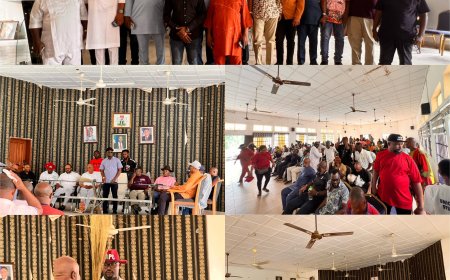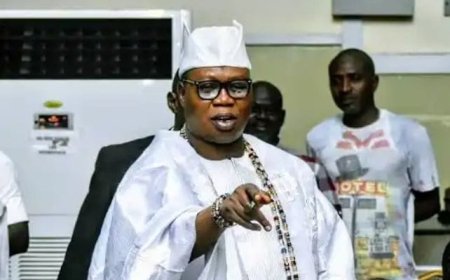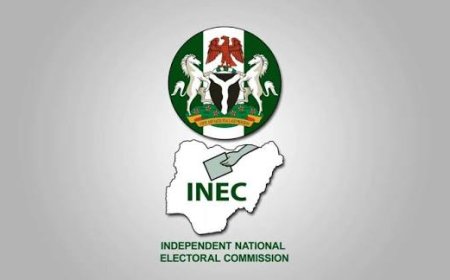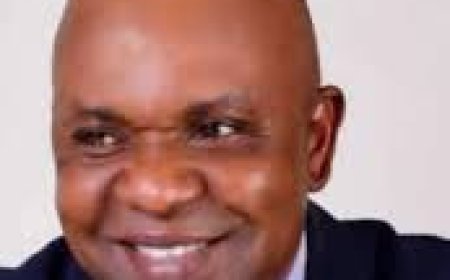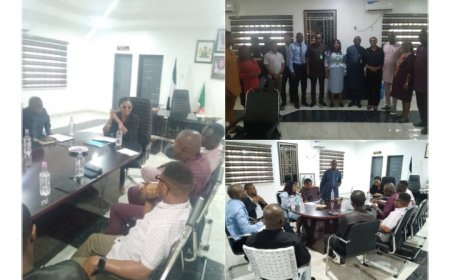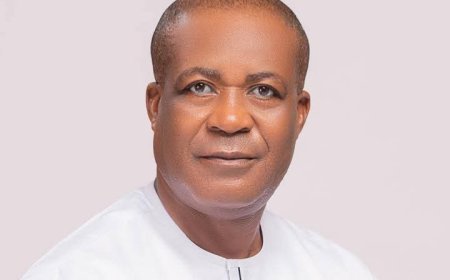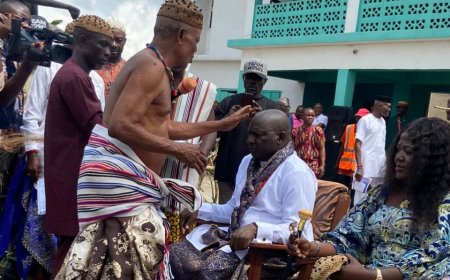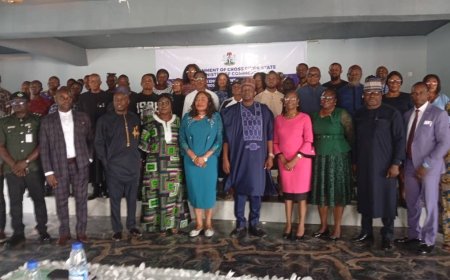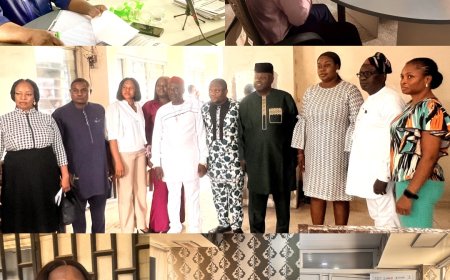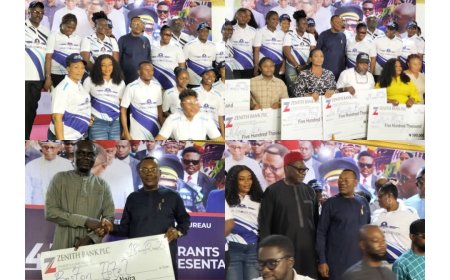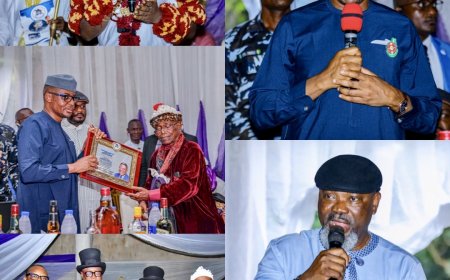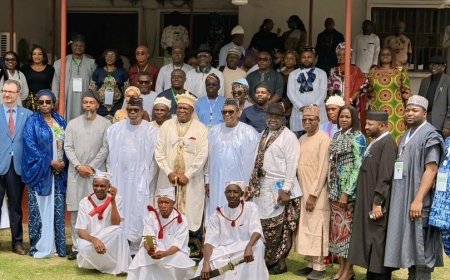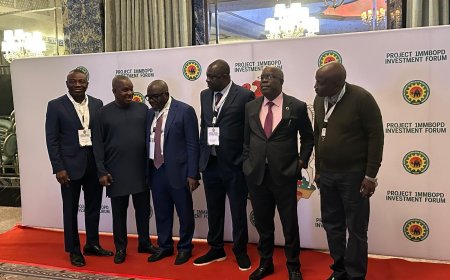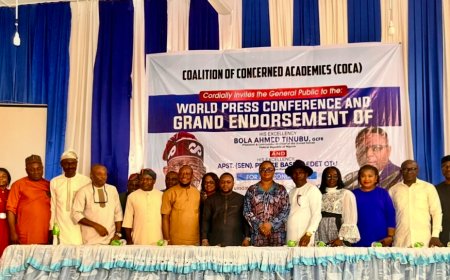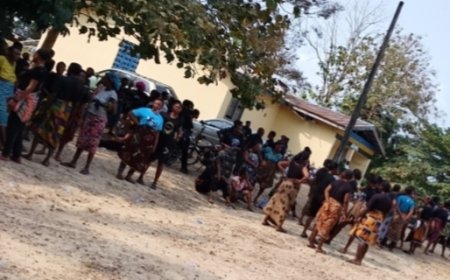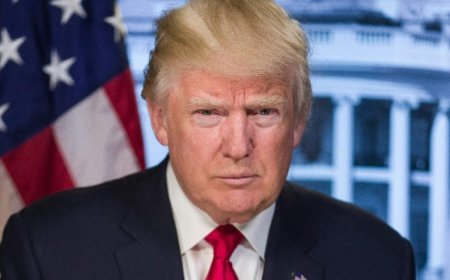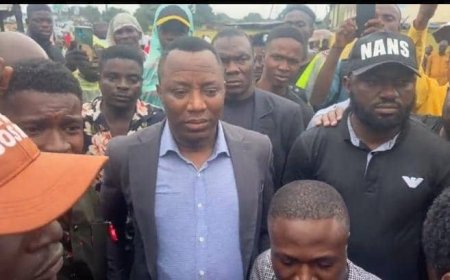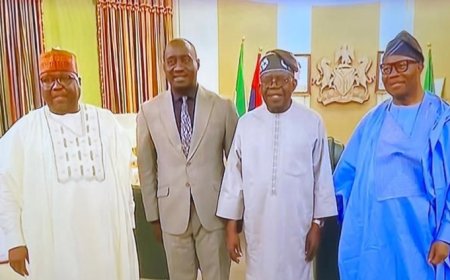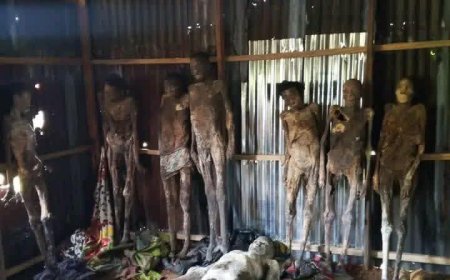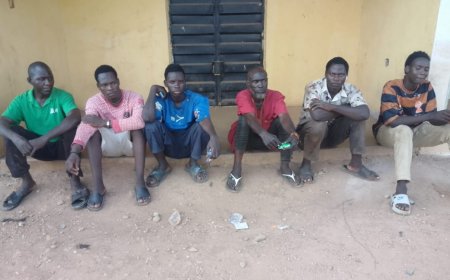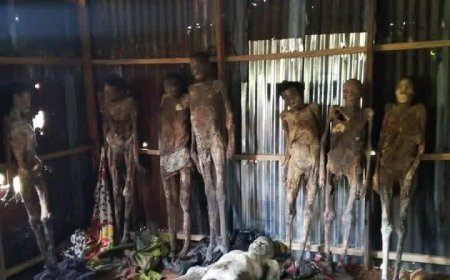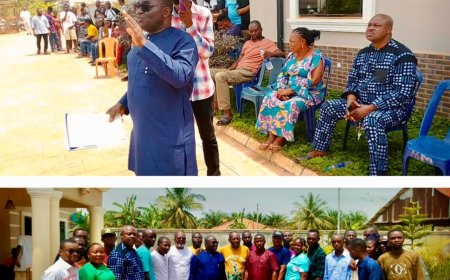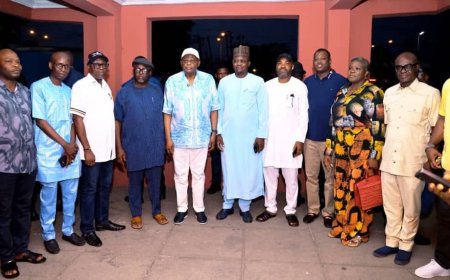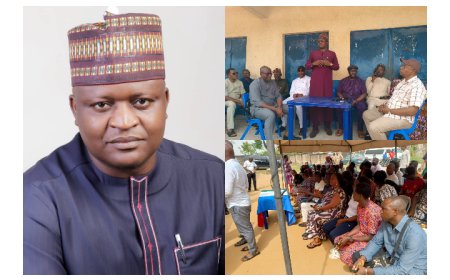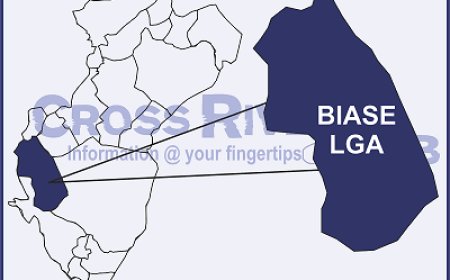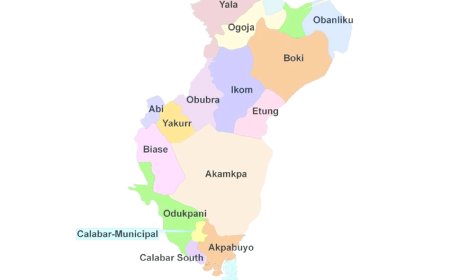OPINION: Speaker Abbas and the Logic of One Day Elections
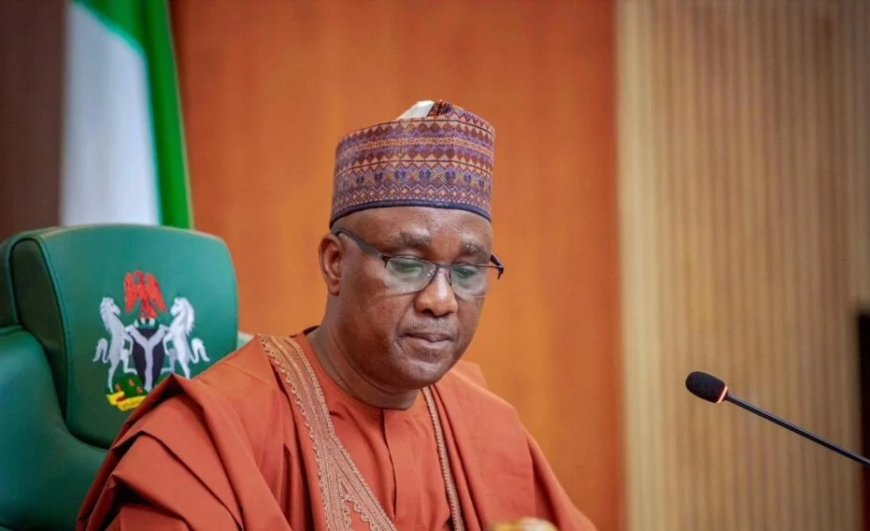
By Uduak Iniodu
When a delegation from the European Union led by a Member of the European Parliament and Chief of Mission, Mr. Barry Andrews and the EU Ambassador to Nigeria and ECOWAS, Mr. Gautier Mignot visited Speaker of the House of Representatives Tajudeen Abbas, it turned out to be more of a thoughtful discussion about the future of democracy in Nigeria than the expected diplomatic visit. During that meeting, the Speaker shared some reform ideas that could change the political narratives of the country. He mentioned three major initiatives which are:
Reserved Seats in Parliament for Women and People Living with Disabilities, Constitutional role for Traditional Rulers and the conduct of all general elections in one day across the Country.
These proposals are already before both Chambers of the Tenth National Assembly, the Senate and the House of Representatives as Bills for consideration and passage. Since the idea came from the leadership of the Legislature, they deserve serious national attention. Among all the proposals, the call for one day elections stands out as a true game changer since it has the power to strengthen democracy, improve transparency and promote genuine representation.
Nigeria currently conducts its elections on different days. The Presidential and National Assembly elections are held same day while Governorship and State Assembly elections follow about a week later.
Over the years this arrangement has created what many call the bandwagon effect. Once the result of the Presidential election is announced, it influences the mood of voters and often determines how they vote in later elections. This system encourages emotional rather than rational voting. Many people simply vote for candidates because they belong to the Party that has already won an earlier election not because they are the best choice. Conducting all elections in one day would end this pattern and give voters the freedom to make their decisions based on individual merit rather than emotion or influence.
This idea is not new. Many Countries already conduct all their elections in one day. In Africa, Ghana, Kenya and South Africa have done it successfully. Outside Africa, India, Brazil and Indonesia which have much larger populations also hold their elections in one day. These examples show that with proper planning, funding and technology, Nigeria can do the same.
The benefits of one day elections are many. It will save money because running elections at different times is very expensive. By holding all elections in one day, the cost can be reduced by up to forty percent. The money saved can be used for schools, hospitals and other infrastructure developments that would benefit citizens directly. It will also make the process more transparent. When voting takes place everywhere on the same day, it becomes difficult to manipulate results or influence voters. Security agencies can focus their resources better and the entire exercise will be easier to monitor.
A one day election will also help restore the meaning of democracy. It will put power back into the hands of the people. Every voter will have an equal opportunity to choose leaders without being influenced by earlier results. It will remove the advantage that some Parties enjoy through manipulation or pressure. Most importantly, it will make it difficult for those who depend on rigging or godfathers to control outcome of elections.
It is very clear that some politicians who have benefited from the weaknesses of the present system will oppose this reform. They fear a system where the people have full control. They know that in a fair and open process, only candidates with real popularity, integrity and capacity would always win. Their fear is a sign that this reform is long overdue.
_OPINION: Speaker Abbas and the Logic of One Day Elections_
_By Uduak Iniodu_
When a delegation from the European Union led by a Member of the European Parliament and Chief of Mission, Mr. Barry Andrews and the EU Ambassador to Nigeria and ECOWAS, Mr. Gautier Mignot visited Speaker of the House of Representatives Tajudeen Abbas, it turned out to be more of a thoughtful discussion about the future of democracy in Nigeria than the expected diplomatic visit. During that meeting, the Speaker shared some reform ideas that could change the political narratives of the country. He mentioned three major initiatives which are:
Reserved Seats in Parliament for Women and People Living with Disabilities, Constitutional role for Traditional Rulers and the conduct of all general elections in one day across the Country.
These proposals are already before both Chambers of the Tenth National Assembly, the Senate and the House of Representatives as Bills for consideration and passage. Since the idea came from the leadership of the Legislature, they deserve serious national attention. Among all the proposals, the call for one day elections stands out as a true game changer since it has the power to strengthen democracy, improve transparency and promote genuine representation.
Nigeria currently conducts its elections on different days. The Presidential and National Assembly elections are held same day while Governorship and State Assembly elections follow about a week later.
Over the years this arrangement has created what many call the bandwagon effect. Once the result of the Presidential election is announced, it influences the mood of voters and often determines how they vote in later elections. This system encourages emotional rather than rational voting. Many people simply vote for candidates because they belong to the Party that has already won an earlier election not because they are the best choice. Conducting all elections in one day would end this pattern and give voters the freedom to make their decisions based on individual merit rather than emotion or influence.
This idea is not new. Many Countries already conduct all their elections in one day. In Africa, Ghana, Kenya and South Africa have done it successfully. Outside Africa, India, Brazil and Indonesia which have much larger populations also hold their elections in one day. These examples show that with proper planning, funding and technology, Nigeria can do the same.
The benefits of one day elections are many. It will save money because running elections at different times is very expensive. By holding all elections in one day, the cost can be reduced by up to forty percent. The money saved can be used for schools, hospitals and other infrastructure developments that would benefit citizens directly. It will also make the process more transparent. When voting takes place everywhere on the same day, it becomes difficult to manipulate results or influence voters. Security agencies can focus their resources better and the entire exercise will be easier to monitor.
A one day election will also help restore the meaning of democracy. It will put power back into the hands of the people. Every voter will have an equal opportunity to choose leaders without being influenced by earlier results. It will remove the advantage that some Parties enjoy through manipulation or pressure. Most importantly, it will make it difficult for those who depend on rigging or godfathers to control outcome of elections.
It is very clear that some politicians who have benefited from the weaknesses of the present system will oppose this reform. They fear a system where the people have full control. They know that in a fair and open process, only candidates with real popularity, integrity and capacity would always win. Their fear is a sign that this reform is long overdue.
Every right thinking Nigerian who desires good governance should support these proposals. They offer a chance to set the country on the path of accountability and effective representation. For too long, unqualified people have been imposed on the electorate through manipulation and influence. Many citizens especially in rural areas have not had a genuine choice in deciding who represents them. The one day election proposal will change that by giving the people the power to freely elect leaders who represent their real interests.
The Tenth National Assembly has a historic duty. Both the Senate and the House of Representatives must work together to pass these Bills and make them law.
This is not about politics or Party loyalty but about building a fairer and stronger Nigeria. The leadership has already shown the will to act. The rest of the Lawmakers must key into the vision and make it a national achievement.
The other proposals by the Speaker are also important. Giving Traditional Rulers a Constitutional role will promote peace and strengthen governance at the local level.
Reserving seats for Women and People with Disabilities will make Parliament more inclusive and ensure that no group is left behind. These ideas reflect a vision of fairness and balance but they can only succeed fully when elections are credible and the will of the people is respected.
Democracy in Nigeria has grown over the years but it still faces challenges of trust and poor leadership selection.
Conducting all elections in one day is not only about saving money or logistics but is also about restoring confidence and fairness in the political process. It will prove that power truly belongs to the people and not to a few individuals who manipulate the system.
If the Tenth National Assembly passes this reform it will mark a turning point in the democratic history of the Country. It will be remembered as the Legislature that restored faith in the ballot and gave Nigerians a reason to believe again. The day all elections are held in one day will be remembered as the day true democracy took root and the voice of the people became the real source of power.
Iniodu is a Public Policy Commentator
